The Fed, Mortgage Rates, and Rent
The Fed has recently raised interest rates from a range of 0% – .25% to a range of .25% – .5%. Predictably, this decision has lead many to wonder whether higher rates will mean a slowdown of the generally recovered housing market. The fact that buyers have recently recovered their confidence after slogging through the recession makes answering this question particularly important.
Luckily, it’s unlikely that the Fed’s decision to raise interest rates will significantly slow the housing market’s recovery. Indeed, according to a recent NPR article, most of the nation’s homebuilders do not believe that the housing market’s recovery is going to slow following the Fed’s decision to raise interest rates. The primary reason for this opinion is that the raise in rates has been modest and will take place gradually. Additionally, mortgage rates have already been slowly inching upwards in anticipation of the Fed’s decision, further softening the impact of the increase. Finally, it’s unlikely that dramatic spikes in interest rates will be occurring any time soon. As of now, interest rates are expected raise about one percent over the next several years.
Additionally, it’s important to realize that, as of now, buying houses is actually cheaper than renting houses. Indeed, while renting might seem far cheaper than acquiring a mortgage, it’s actually becoming feasible for a smaller group of the population. At this point, about 21 million Americans are spending more than the recommended 30% of their income on monthly rent payments, while about 26% of this group spends more than half of their monthly income on rent. According to a recent article on CNN Money, one of the main reasons behind this problem is that inflation is increasing faster than wages. As an example, consider that rent, adjusted for inflation, increased about 7% between 2001 and 2014. At the same time, the average household income dropped about 9%. At this point, the median monthly cost to rent an apartment has increased by 26% since 2012, climbing to nearly $1,400. As such, it is becoming significantly more difficult for not only low-income, but middle-income households to make rent payments each month.
On the flipside, consider the state of 30-year fixed rate mortgages. Currently, these mortgages sit at a lean 3.95%. To put this number into perspective, 30-year fixed rate mortgages were nearly 7% in mid-2006. While rates still aren’t as low as they were in 2013, their increase has been modest, and so mortgages remain reasonable, especially in comparison to most rents. As such, even with the Fed’s increase in interest rates, capitalizing on the current low mortgage rates is a wise decision and could save you significant sums of money over the next several years.
Contact Cody Touchette, MLO # 83216, Pickett Street’s preferred lender, with any questions!
